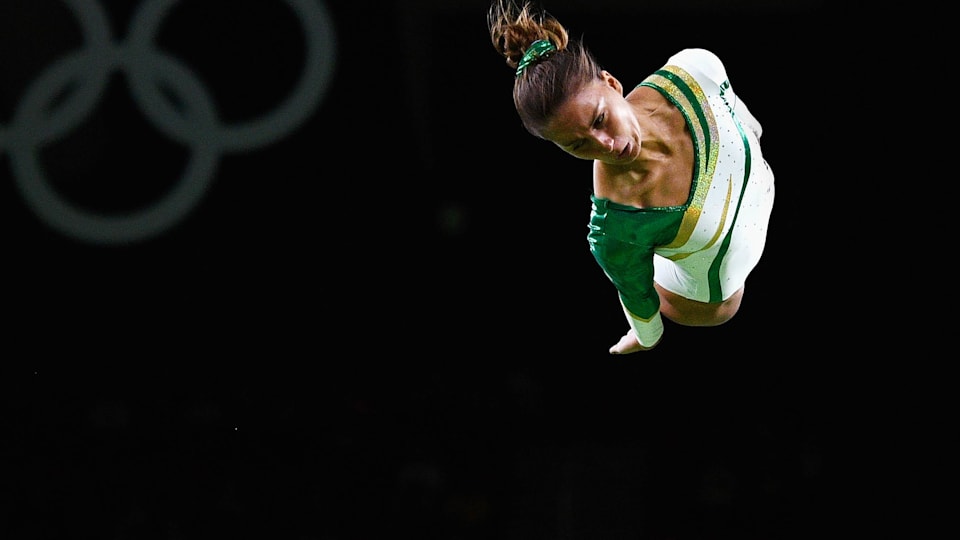Portuguese doctor targeting Olympic glory in Tokyo
Olympian Ana Rente juggles two highly challenging and intense occupations – as a trampolinist and a family doctor. This means a huge workload, but her commitment to both pursuits remains unwavering: “It’s not worth doing something in life unless you enjoy it,” she says.

“A force of nature” is how her supervisor at her medical practice describes her, adding that Rente demonstrates “unimaginable strength”.
Born in Coimbra in 1988, and now living in Lisbon, Rente tried many sports as a child; but it was in the gymnastics hall where she discovered her passion, bouncing on a trampoline: “I really enjoyed that feeling…of being able to fly a little,” she remembers.
Her desire to become a doctor took longer to emerge, and grew directly out of her sporting obsession, fed by a curiosity to know more about the workings of the human body.
Rente now works 40 hours a week, and after a full day in the doctor’s surgery, she somehow finds the energy to train at the Lisbon Gymnastics Club, under the guidance of her two coaches, Luís Nunes and Carlos Nobre. She admits that, at times, she struggles with her gruelling schedule.
“By the end of the day when I have to go to training I'm very tired. I feel like sometimes I don’t make enough of training because I'm having to combine my work and sports career,” she says.
“It's not just physical fatigue, it's also psychological, knowing that every day is the same, working six hours a day then afterwards having to train.”
The Portuguese won gold at the 2004 European Junior Championships, but had to wait 11 years for her first major podium finish at senior level – a bronze in the synchronised event at the 2015 European Games in Baku (AZE), alongside Beatriz Martins.
Her first experience of the Olympic Games had come seven years earlier at Beijing 2008, where, aged 20, nerves got the better of her and she managed just 16th place. Four years later, in London, she improved on that showing, finishing 11th.
In the build-up to Rio 2016, Rente decided to take a different approach, making the bold decision to spend two months away from her medical career in order to focus on training: “I felt that I was near physical and psychological exhaustion, and to do everything would be too much,” she reflects.
Although she failed to reach the finals, she did leave Rio with an engagement ring, after her boyfriend Gustavo Simoes proposed to her under the Olympic rings. Like his fiancée, Simoes manages a packed schedule, combining a sporting career (he also competed in gymnastics at Rio 2016) with his studies to be a nutritionist.
Rente says she prefers to live “one day at a time”, but her hopes of Olympic success remain undented; and she now has her sights set on an improved performance in Tokyo in 2020. “When we cannot achieve our goals it gives us strength to improve in the future,” she says.
